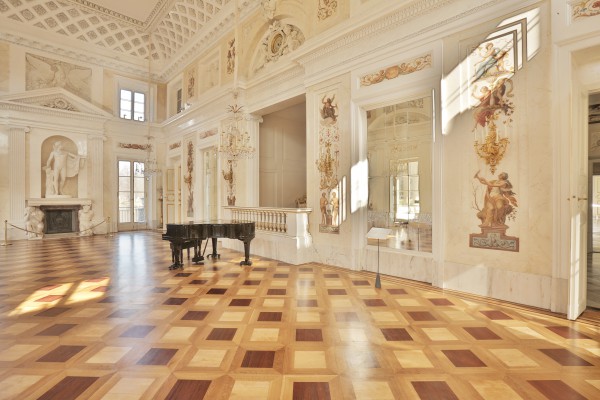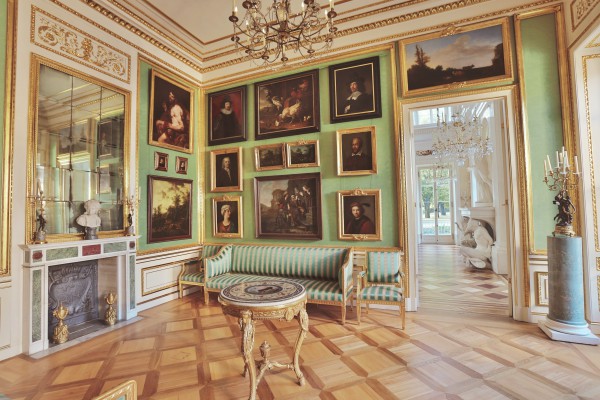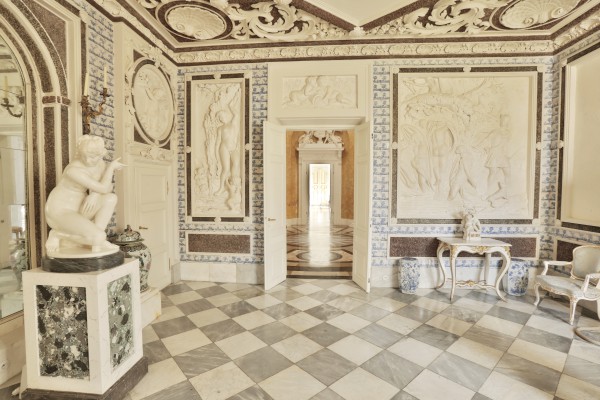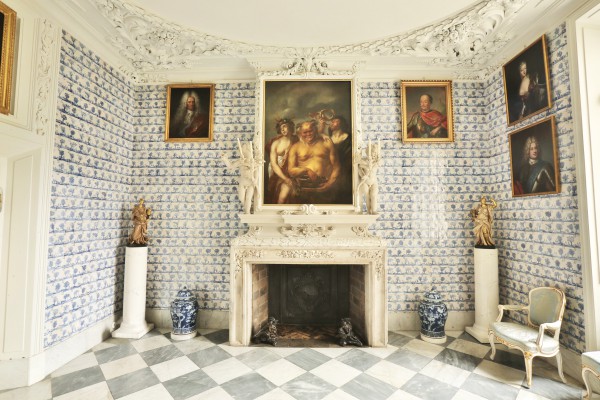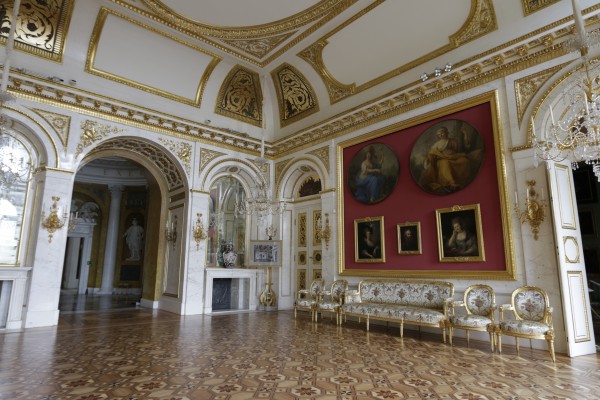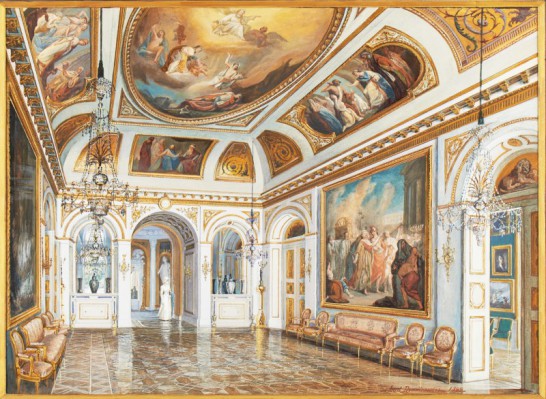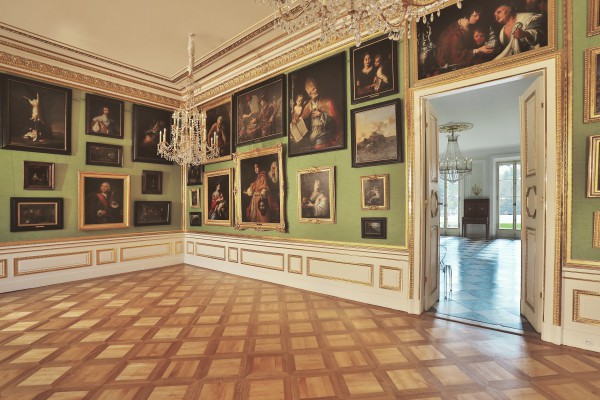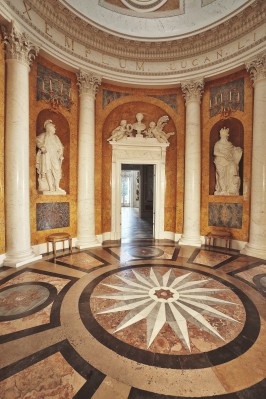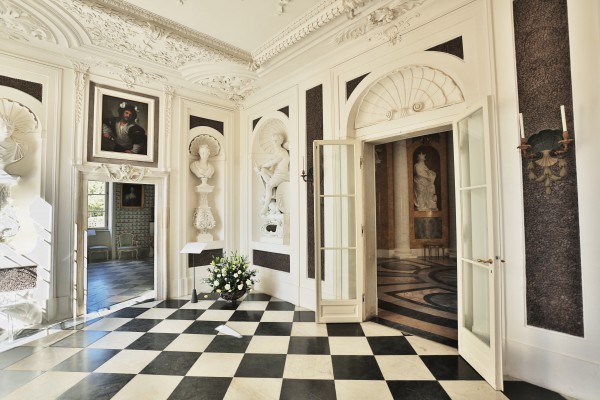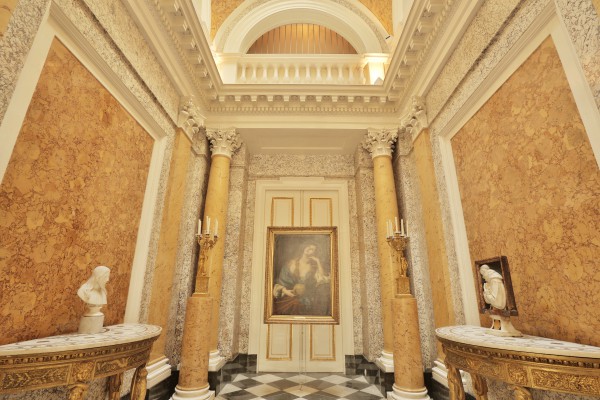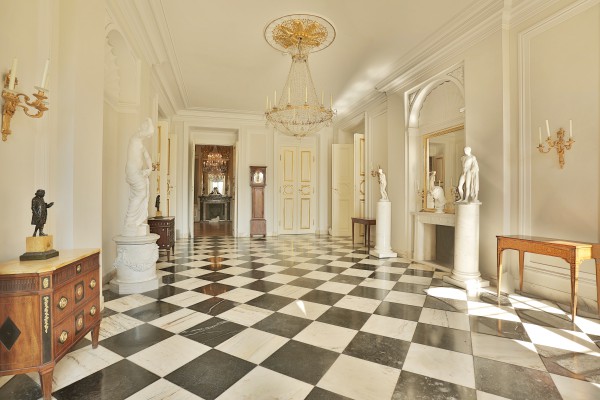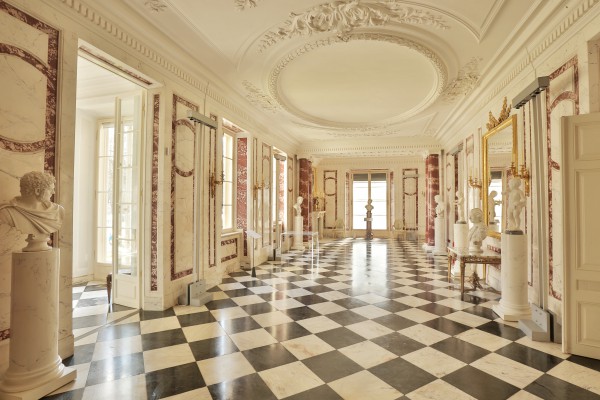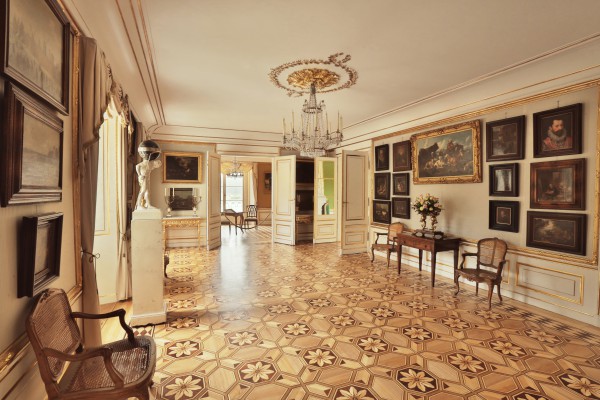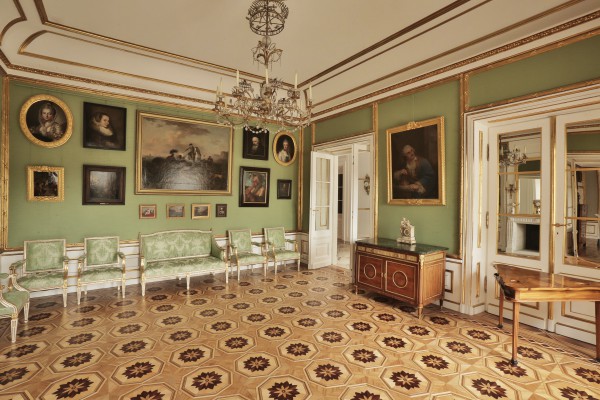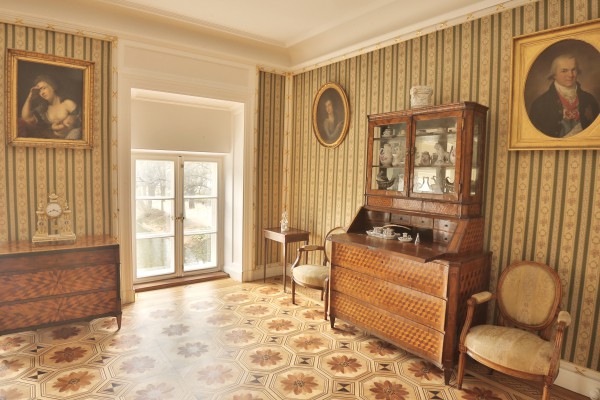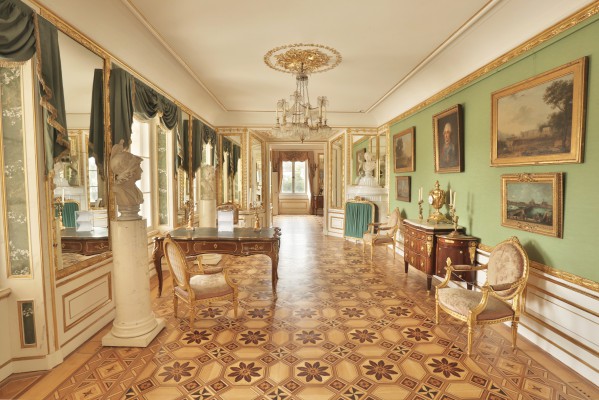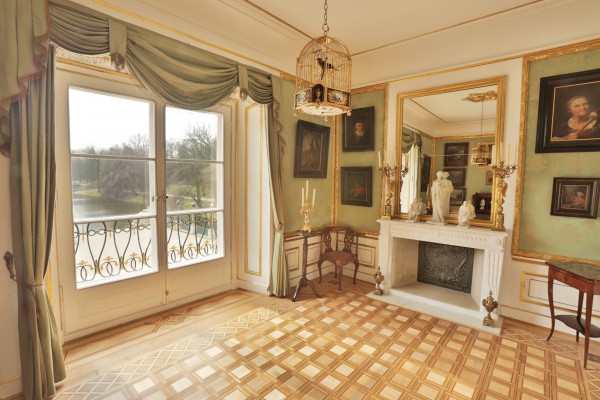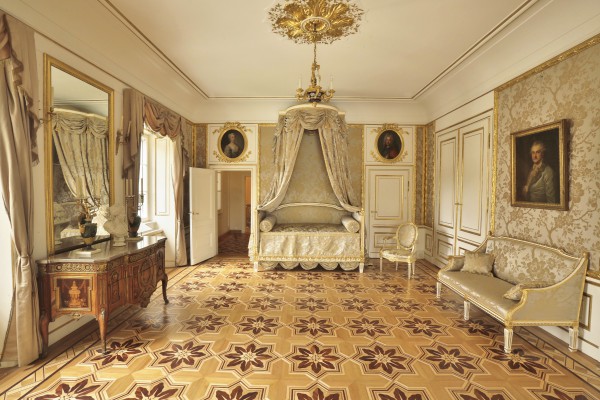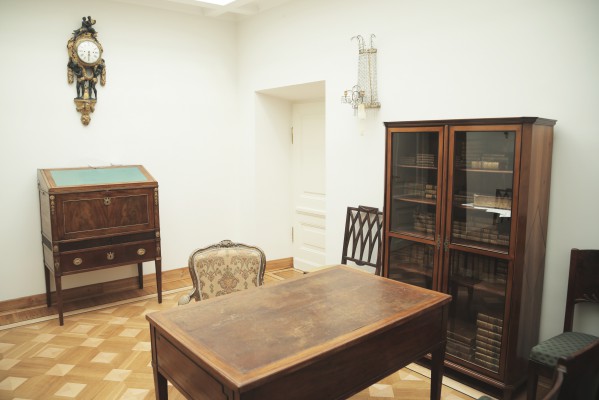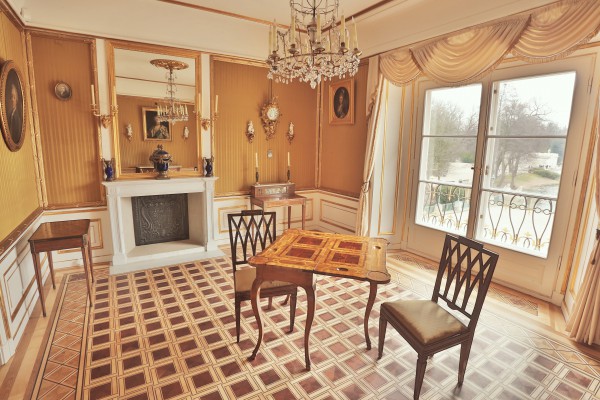
The Picture Gallery
It was arranged according to a design by Johann Christian Kamsetzer, after the reconstruction of 1788. It is a spacious interior built on the plan of a long rectangle, situated in the northern bay of the Palace, and intended for the display of paintings. During the day, this location ensured the best lighting conditions for admiring works of art. It was here that, in the times of Stanisław August, the most precious works of art from his collection were shown. The numerous extraordinary objects comprised as many as six paintings by Rembrandt including The Girl in a Picture Frame and The Scholar at His Writing Table. At the time, the room was also used as a billiard room.
The walls of the Gallery are lined with green canvas. Even today, the room’s appearance is marked by the multiple paintings in gilded and dark frames hanging on the walls. These canvases have been hung in accordance with the 18th century technique, forming a decorative wallpaper. The dark frames harmonize with the fireplace made of black marble (dębnik) mined near Cracow, which occupies the opposing wall. The fireplace’s model was made in 1790 by Giuseppe Amadio and Paolo Casasopra. At the top of the fireplace, above the mirror, hangs a round medallion with a bust of Antoninus (copy of a bas-relief from Villa Albani), framed with gilded griffins. Near the fireplace stand monuments from Stanisław August’s collection: Venus de' Medici (made in c. 1774-1776) and Faun with Kid (before 1790). These are the creations of the first Royal sculptor, André Le Brun, modelled on the Ancient originals. Stanisław August wanted to include the latter sculpture in the museum of sculpture, which he was planning to establish at the time. Sleeping Cupid by Francesco Lazzarini lies in the background of the fireplace. The fireplace is also adorned with a Classicist clock, which belonged to the Gallery’s initial arrangement.
